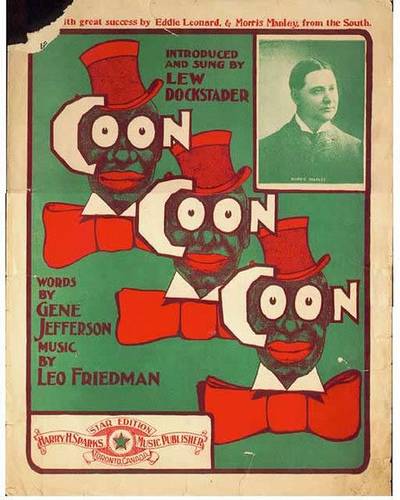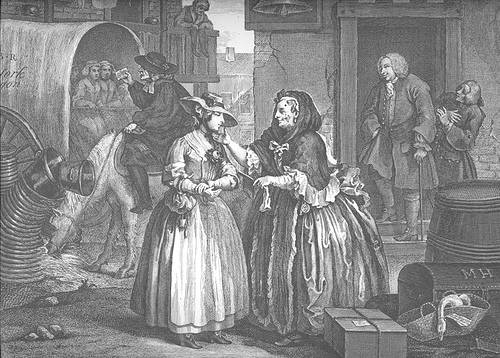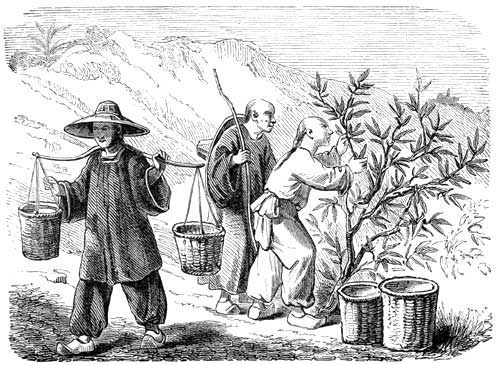
Lyrics to “Coon! Coon! Coon!”, billed as “The Most Successful Song Hit of 1901”:
Although it’s not my color,
I’m feeling mighty blue;
I’ve got a lot of trouble,
I’ll tell it all to you:
I’m cert’nly clean disgusted
With life, and that’s a fact
Because my hair is wooly
And because my color’s black.
My gal, she took a notion
Against the colored race.
She said if I would win her
I’d have to change my face;
She said if she should wed me,
That she’d regret it soon,
And now I’m shook, yes, good and hard,
Because I am a coon.
CHORUS:
Coon! Coon! Coon!
I wish my color would fade.
Coon! Coon! Coon!
I’d like a different shade.
Coon! Coon! Coon!
Morning, night and noon.
I wish I was a white man
‘Stead of a Coon! Coon! Coon!
I had my face enameled,
I had my hair made straight.
I dressed up like a white man,
And cert’nly did look great.
Then started out to see her,
Just shortly after dark,
But on the way to meet my babe
I had to cross a park;
Just as I was a-thinking
I had things fixed up right,
I passed a tree where two doves
Sat making love at night;
They stopped and looked me over,
I saw my finish soon.
When both those birds said good and loud,
“Coo-oo-oo-oo-oo-oon.”



